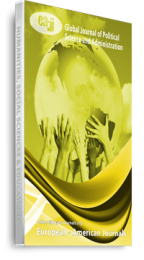Sustainable development debate provides a new look at the institutional framework for corruption dynamics in Africa .Following the introduction of the Extractive Industries Transparency Initiative (EITI) and the Natural Resources Charter, it becomes relevant to evaluate theoretical debates on development administration and corruption interface from the institutional lens among African states, largely described as poor, rent seeking, predatory, prebendal, weak, soft, fragile, failed, vulnerable, pirate , vampire, underdeveloped etc. Whereas development failures are issues of growing scholarly concern in Africa, corruption which is conceived as diversion of public resource for private gains, becomes one central issue that requires adequate attention in the context of development discourse. This paper is framed within the context of corruption and development administration nexus using the institutional approach. It corroborates Sen’s model of “development as freedom”, and argues that development administration practice should now be guided by certain ethical guidelines defined on the basis of social justice, transparency, accountability and equality. Our findings posit that post colonial development debates should now go beyond a cursory look at development administration in the periphery societies as merely ‘comparative public administration’ rather explores how best institutional structures and actors at cross country levels could be sustainably tailored to confront contemporary development failures in Africa, influence the conduct of governance, reshape policy discourse and meet development needs. This new look seeks for alternative mechanisms for institutional overhaul of Africa’s public administration cognizant of the resurgent developmental states in East Asia where similar institutions play key developmental roles. The paper refutes existing practices in Africa where bureaucratic corruption undermines economic growth and sustainable development rather argues that development administration could be an influential apparatus for transparency, accountability and sustainable development.
Keywords: Africa, Development Administration, Developmental State, Systemic Corruption

